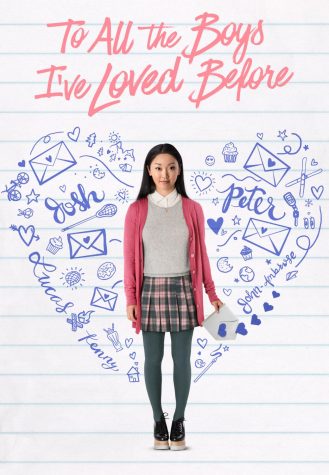The cultural impact of rom-coms
February 16, 2023
Romantic comedies or “rom-coms” are seen as a romantic escape from a hectic world or unsuccessful dating life. They plunge us into a new world where magazine how-to writers can afford luxurious apartments in Manhattan. All rom-coms typically have similar plots, and this well known formula is something that avid watchers know to a tee. Boy meets girl, boy and girl refuse to admit their feelings. Then, inevitably, a grand gesture solves it all, and the couple admits their love for each other. Going from either enemies to lovers or friends to lovers, the protagonists always seem to find their ideal happy ending as the movie comes to a close.

Although the dynamics have changed through differences of culture or race, the same structure dates back centuries to Shakespeare’s “The Merchant of Venice” and “A Midsummer Night’s Dream.” The basic plot of current rom-coms tend to reflect those of Shakespeare’s time, yet they are no longer one dimensional. In the past women were often presented as airheads who are desperately chasing men. Yet as the genre modernized, women are no longer solely striving after others or being transformed into something that men desire. Instead, they are now being portrayed as strong, independent and successful. These new iterations of the classics represent equal weight to both partners.
“To All the Boys I’ve Loved Before” is just one evolutionary example of a new take on the classics, such as “When Harry Met Sally,” “Clueless,” “Sleepless in Seattle” and “How to Lose a Guy in 10 Days.” “The To All the Boys I’ve Loved Before” trilogy takes the audience through the story of Lara Jean and Peter, who begin a fake relationship to make an ex-girlfriend jealous, but eventually fall in love. By the end of the third and final installment, however, it is no longer the stereotypical love story as Lara Jean ultimately prioritizes her education and independence over her relationship. This fresh take on the rom-com includes more depth in both diversity and plot with a Korean-American lead.
The rom-com craze has always been present, but the pandemic has pushed it over the edge. Love and intimacy tends to be a goal that many humans strive for. In the dark days of the pandemic, many of us were missing the meaningful connections that we craved. During these hard times and loneliness, the only way to gain back in-person relationships was to watch something that embodied those connections. Humanity turned to rom-coms as the ultimate solution.
“I think that students tend to watch rom-coms to fill gaps in their own relationships, or try to live vicariously through the characters if they don’t have much of a love life themselves” Claire Doner (‘24) said. “10 Things I Hate About You” and “How to Lose a Guy in 10 Days” are two of my favorites that I keep coming back to.”


